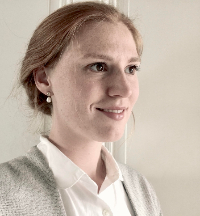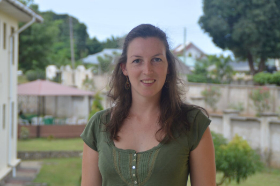



Governments across Africa have taken measures to contain the outbreak of COVID-19. The current flood of information is mainly dominated by official sources, media and expert opinions. But how do Africans see the current situation? What do they know about the coronavirus and how are their lives affected? As the KFIBS Africa Research Unit, we were curious to hear the personal stories. This series of blog entries presents answers from people from different countries to questions about personal changes in life, political reactions and their sources of information. We would like to thank everyone who contributed to these articles.
* * *
“The coronavirus is sweeping over mankind.” This is the beginning of a song that was released on 25 March 2020 by the Ugandan musician and politician Bobi Wine. Under the hashtag #DontGoViral, the song which then went viral itself, calls on people not to take COVID-19 lightly. It raises awareness of the disease which, according to the African Union, has to date caused the death of about 2.290 people in Africa (as of 11 May 2020).
Compared to the coronavirus death toll in single European countries such as Germany (7.417), African countries have thus only been lightly touched by the disease so far. Common narratives dominated by official sources, media and expert opinions suggest that the worst for the continent is yet to come. Referring to weak health systems and insufficient capacities in hospitals, epidemiologists have raised concerns about African states’ ability to cope with the virus. In a broader sense, COVID-19 may also lead to food shortages in regions already affected by crisis or droughts. In East Africa, for example, livelihoods of millions of people are currently threatened by a severe locust invasion. Moreover, a lack of remittances due to the global economic recession could exacerbate pressure for the most vulnerable. By contrast, the relatively young population in Africa and the experience already gained from other epidemics such as Ebola could be assets in the fight against the spread of the disease.
With the containment measures, many people around the world are currently sharing the same experiences: The renunciation of cultural activities has become a necessity and the avoidance of personal contact with vulnerable family members a gesture of love. For some, working from home has become normal, whereas many have lost their jobs. In this sense, the current crisis could have some positive effects in bringing the world population closer together. At the same time, the coronavirus has also led to the closing of borders and to xenophobia, forcing people to leave their homes. Faced with this ambiguity, we were curious about the personal stories linked to the exceptional times we are witnessing.
As the KFIBS Africa Research Unit, we asked different people in various contexts how their lives have changed individually, how they perceive the respective national measures and through which media they receive their information and updates. We were also interested in what way the coronavirus affects women and men differently. Besides revealing interesting insights into different perspectives, the project also gave us the very much appreciated opportunity to reconnect and exchange with acquaintances and friends. On this blog, we will present our findings in a series of articles, each with a different focus.
On behalf of KFIBS and all readers, we would like to thank all interview partners who shared their views and gave their consent to publish this blog. Thank you very much for your time and openness!
Among others, the following persons were involved: Mokgeseng Ramaisa (from South Africa), Kamvelihle Mapundo (from South Africa), Percival Quina (queer man from South Africa and graduate in “International Relations”), Michel Agodji (research assistant from Benin), Mildred Johnson (researcher from Namibia), Nolawit Teshome (lady from Ethiopia), Felix Chabala (student from Zambia), Hastings Sichone (Zambian lawyer), Mwansa Mungela (international development practitioner from Zambia), Deodatha Agricola (environmental science and management officer from Tanzania, Rosalie Zobo (Ivorian political analyst living in Senegal) as well as Adnan Mohamed (Ghanaian migrant in Libya).
The above-mentioned personal descriptions in brackets were chosen by our interview partners themselves. Please note that all opinions expressed in this blog are purely personal and do not necessarily reflect the opinion of the majority or of the authors. Like ourselves, most of our interview partners enjoyed the privilege of higher education and therefore cannot be considered representative for regions or nations.
By Miriam Kalkum, Sandra M. Dürr, Verena G. Himmelreich and Lennart P. Groscurth
(Hinweis: Der vorliegende Blog-Beitrag gibt nicht zwingend die Meinung des KFIBS e. V. wieder.)

